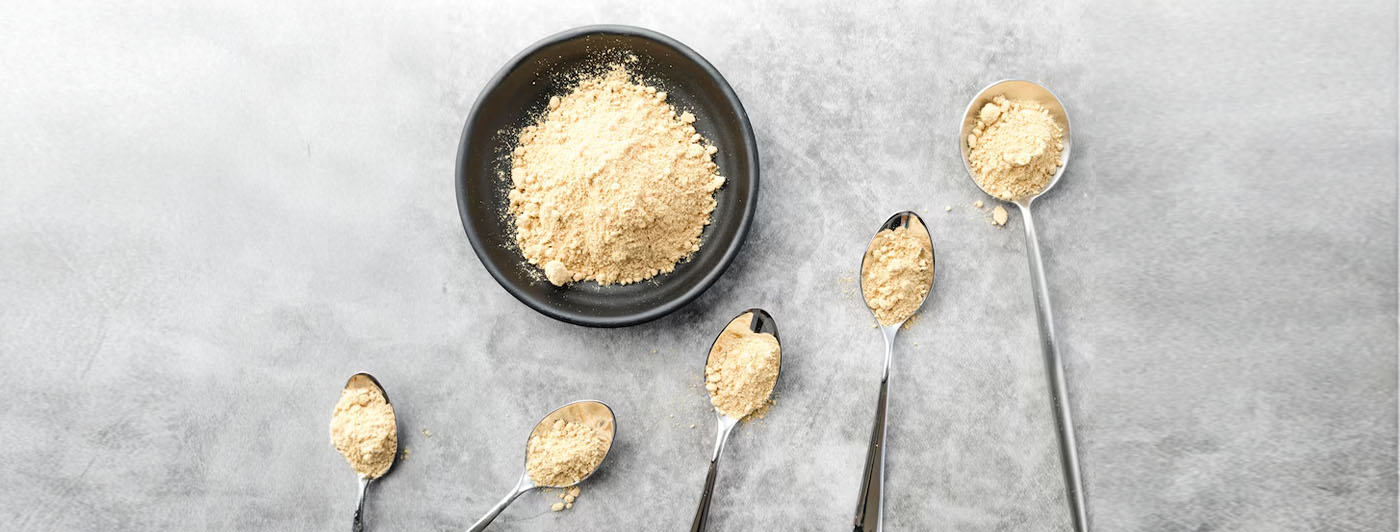Ever stood in front of a shelf of protein powders, confused between plant-based and whey, wondering which one will actually help you build muscle? You're not alone. With fitness influencers swearing by both sides and brands making bold claims, it’s tough to know what really works—and what’s just marketing.
Protein is the cornerstone of muscle development and overall fitness. Among the most popular choices are plant protein and whey protein, both known for their effectiveness—but different in their composition, digestibility, and benefits. The ongoing debate of whey protein vs plant protein is especially relevant for those looking to gain lean muscle mass while also aligning with personal health, dietary preferences, and environmental values.
Let’s explore the comparison—to help you make a smart, science-backed decision.

Protein Quality and Muscle Growth Potential
Plant protein has come a long way in matching the muscle-building capabilities of animal-based options. While individual sources like pea, rice, or hemp may not always be “complete” proteins, formulated blends of plant based protein powder now offer all essential amino acids, including leucine—critical for muscle protein synthesis (MPS). Several clinical studies have shown that consistent intake of plant-based proteins, when combined with resistance training, results in comparable muscle gains to whey.
Whey protein, often considered the gold standard, is quickly digested and rich in leucine. Its complete amino acid profile supports rapid MPS. However, the advantages diminish over time, especially when total daily protein intake is adequate and diversified. Thus, the whey protein vs plant protein muscle-building debate is now more about personalization than superiority.
Protein Content: How Much Do You Really Get?
When comparing whey protein vs plant protein, one of the most direct measures is how much protein you get per scoop.
Plant protein, especially from sources like peas, rice, or soy, typically delivers 20–25g per 30g scoop. While slightly lower than whey in raw content, it often includes added fiber, minerals, and antioxidants—making it nutritionally richer. When paired with foods like groundnuts or one spoon peanut butter protein, its value multiplies.
Whey protein usually contains 24–27g per scoop, particularly in isolate form. It's slightly higher in pure protein but lacks the added nutrients of plant based protein powder.
Ultimately, the slight edge in content doesn’t translate to better results—research shows whey protein vs plant protein delivers similar muscle gains when training and total intake are matched. If you’re looking at overall nutrition and digestibility, plant protein is a strong, balanced contender.
Digestion and Tolerance
Plant protein is typically easier on the digestive system. It’s free from lactose and cholesterol, and newer extraction techniques remove most of the anti-nutrients while preserving fiber and phytonutrients that aid gut health. Those with sensitive stomachs often find that plant based protein powder causes less bloating and gas, making it a gentler daily option.
Whey protein, although efficient in absorption, can be problematic for those with dairy intolerance. Even whey isolates, which have reduced lactose, may cause digestive discomfort. This makes whey protein vs plant protein an important consideration for those prone to gastrointestinal issues.
Nutrient Density and Broader Health Benefits
Plant protein sources like legumes, seeds, and groundnuts come bundled with micronutrients like iron, magnesium, and zinc—essential for energy production, muscle repair, and immunity. When used as part of a holistic diet, plant protein contributes not just to muscle gain, but to long-term wellness. It also complements whole foods rich in vitamin b12 vegetables and fruits (including fortified options) to round out a plant-based nutritional profile.
Whey protein is highly concentrated but offers limited micronutrient variety unless fortified. While it supports muscle growth, it doesn’t provide the antioxidant or fiber content that plant-based options do. In the context of whey protein vs plant protein, plant sources come out ahead in terms of nutrient diversity and synergy with whole-food nutrition.
Energy, Performance & Pre-Workout Fuel
Plant protein is ideal for sustained energy release. When paired with complex carbohydrates like oats or bananas, it forms a great pre workout meal for muscle gain. A smoothie with one spoon peanut butter protein, banana, and oat milk offers a balanced mix of macros and micronutrients to fuel intense sessions without sugar crashes.
Whey protein is absorbed faster and thus often consumed post-workout. While it can be used pre-workout, the rapid digestion may not provide as sustained energy. When evaluating whey protein vs plant protein for performance, the ideal choice depends on your workout timing and digestion preference.
Body Composition and Weight Control
If you're targeting lean muscle without added fat, plant protein is a valuable tool. It is naturally lower in saturated fat and calories, and protein shakes for weight loss can help reduce cravings while preserving muscle mass. They also offer additional fiber, which supports satiety and blood sugar stability.
Whey protein supports muscle retention as well, especially when used in calorie-restricted diets. However, it lacks fiber and may increase insulin response in sensitive individuals. In the whey protein vs plant protein weight management context, plant protein often works better for those focusing on fat loss and clean bulking.
Sustainability and Ethics
Plant protein is significantly more sustainable. Growing peas, rice, and legumes for protein requires less land, water, and energy compared to dairy farming. Choosing plant-based options aligns with conscious consumption and reduces environmental impact—making a powerful case in favor of plant protein in the whey protein vs plant protein debate.
Whey protein, while efficient in muscle building, is a byproduct of the dairy industry, contributing to greenhouse gas emissions and animal welfare concerns. For many, these considerations tip the scale in favor of sustainable plant-based alternatives.
Production and Transparency
Wondering how is protein powder made? Plant protein powders are often derived through natural extraction processes, such as water separation and cold milling. This retains more of the original nutrients and results in a cleaner ingredient list, especially in premium plant based protein powder formulations.
Whey protein, on the other hand, is produced from the liquid residue of cheese-making. This undergoes multiple filtering stages and may include additives to enhance flavor and texture. Comparing whey protein vs plant protein in terms of purity, many clean-label consumers now lean toward plant-based options for peace of mind.
Vegan Protein: The Growing Force
The rise of vegan protein has debunked myths around plant protein being inadequate for strength or size. Athletes across sports—from tennis to bodybuilding—are thriving on plant-based diets. With the right combinations, such as pea + brown rice or hemp + chia, plant protein now supports strength, stamina, and muscle growth effectively.
This transformation has made the whey protein vs plant protein debate less about compromise and more about conscious performance.
Final Thoughts
So, where do we stand in the debate of whey protein vs plant protein?
While whey still holds value for quick recovery, plant protein has caught up on every metric—from amino acid completeness to muscle-building performance. Plus, it brings added health benefits, easier digestion, environmental responsibility, and versatility across age groups. Whether you’re designing a 7 day meal plan for elderly, fueling gym progress, or simply aiming for better nutrition, plant protein offers a compelling and well-rounded option.
Ultimately, the best protein is the one that fits your goals, values, and body’s needs. And if it happens to be greener, cleaner, and just as strong—why not make the plant-powered choice?












